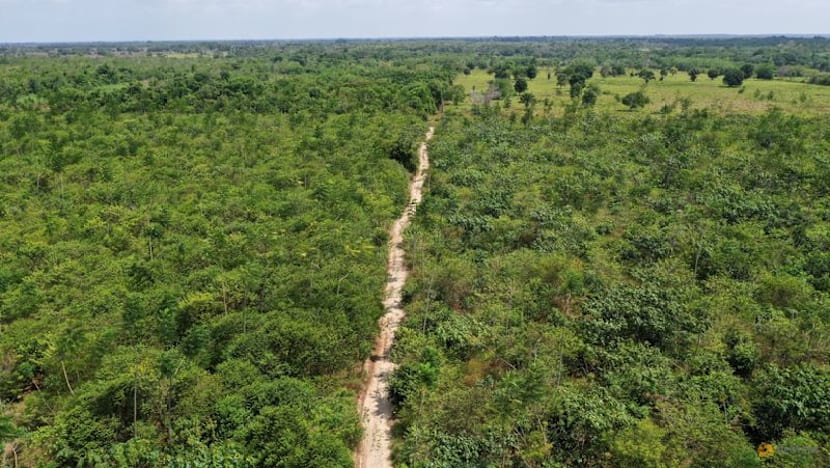Business
Google Partners with Brazilian Startup to Restore Amazon Rainforest

Google has finalized a significant carbon removal agreement with Brazilian startup Mombak, aiming to finance the restoration of the Amazon rainforest. This deal, reported to offset 200,000 metric tons of carbon emissions, represents Google’s largest commitment to date in the realm of carbon credits. The partnership emphasizes the growing demand among major tech companies to offset emissions from their energy-intensive data centers.
Details of the Agreement
Both companies have chosen not to disclose the financial specifics of the deal. This agreement marks a substantial increase compared to a previous pilot offtake agreement in September 2024, which was four times smaller in volume. According to Randy Spock, Google’s head of carbon credits and removal, the efficiency of reforestation projects, particularly through the process of photosynthesis, is unmatched in reducing atmospheric carbon.
As Brazil prepares to host the United Nations climate summit COP30 in the Amazon city of Belem this month, the focus on conservation efforts is intensifying. This summit, dubbed the “Forest COP,” seeks to highlight and promote the protection of tropical forests, providing a backdrop for Google’s partnership with Mombak.
Commitment to Quality Carbon Offsets
Google has opted to avoid REDD credits, which compensate developers for conserving forest areas that might otherwise be deforested. This market has faced challenges, including allegations of fraud and connections to illegal logging in Brazil. Spock emphasized the credibility of Mombak’s approach, stating, “The reason we quadrupled down on Mombak is they’ve got a very credible approach.” Mombak specializes in transforming degraded pastureland back into rainforest, aligning well with Google’s objectives.
Gabriel Silva, Mombak’s co-founder and Chief Financial Officer, noted a shift in buyer behavior, stating, “Buyers were previously buying carbon credits but didn’t know what they were buying, leading them to engage with low-quality, sometimes fraudulent projects.” To address this, Google joined forces with several major corporations, including Meta, Salesforce, McKinsey, and Microsoft, forming the Symbiosis Coalition. This coalition aims to procure over 20 million tons of nature-based carbon offsets by 2030, adhering to stringent scientific standards.
Recent assessments by the coalition indicate that Mombak is the first project to meet these rigorous criteria, which encompass transparent carbon accounting, long-term preservation, and benefits for biodiversity and local communities. Julia Strong, Executive Director of Symbiosis, noted that Brazil has the highest number of projects vying for the coalition’s endorsement, with expectations for more to follow.
Despite the increased attention to quality carbon credits, the market faces challenges related to supply. While REDD credits can be priced under $10 per ton, new reforestation initiatives in Brazil command prices exceeding $50 and even $100 per ton. Silva commented on the evolving landscape, stating, “Companies are getting more efficient, in terms of producing at lower prices. We are on that path, but right now there’s way more demand than supply.”
As the world continues to grapple with climate change, collaborations like the one between Google and Mombak may set a precedent for future carbon offset initiatives, reflecting an urgent commitment to environmental sustainability.
-

 Lifestyle3 months ago
Lifestyle3 months agoHumanism Camp Engages 250 Youths in Summer Fest 2025
-

 Sports3 months ago
Sports3 months agoDe Minaur Triumphs at Washington Open After Thrilling Comeback
-

 Business4 months ago
Business4 months agoKenvue Dismisses CEO Thibaut Mongon as Strategic Review Advances
-

 Sports4 months ago
Sports4 months agoTupou and Daugunu Join First Nations Squad for Lions Clash
-

 Top Stories4 months ago
Top Stories4 months agoColombian Senator Miguel Uribe Shows Signs of Recovery After Attack
-

 Health3 months ago
Health3 months agoNew Study Challenges Assumptions About Aging and Inflammation
-

 World4 months ago
World4 months agoASEAN Gears Up for Historic Joint Meeting of Foreign and Economic Ministers
-

 Business4 months ago
Business4 months agoOil Prices Surge Following New EU Sanctions on Russia
-

 Entertainment3 months ago
Entertainment3 months agoDetaşe-Sabah Violin Ensemble Captivates at Gabala Music Festival
-

 Entertainment3 months ago
Entertainment3 months agoBaku Metro Extends Hours for Justin Timberlake Concert
-

 Business4 months ago
Business4 months agoU.S. House Approves Stablecoin Bill, Sends to Trump for Signature
-

 Top Stories4 months ago
Top Stories4 months agoRethinking Singapore’s F&B Regulations Amid Business Closures









